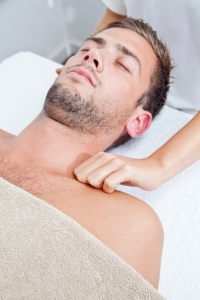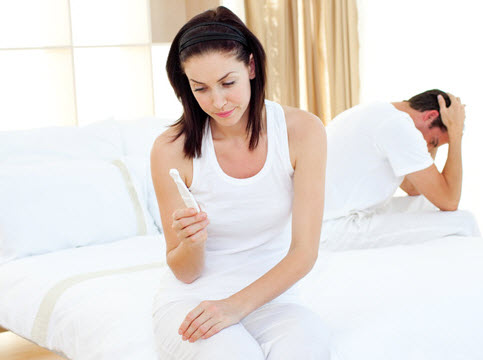Personal reflections of a BTPA Chair
Walk the Talk – the BTPA Way
Encouraged to join the BTPA as a student member in 2006 by my Bow en teacher (Alastair Rattray) and taking up full membership the following year, little did I think that I would end up enjoying the privilege of being its Chair! But as the sayings go, “Stranger things have happened” and “Someone’s gotta do it ….”.
en teacher (Alastair Rattray) and taking up full membership the following year, little did I think that I would end up enjoying the privilege of being its Chair! But as the sayings go, “Stranger things have happened” and “Someone’s gotta do it ….”.
I am delighted to say that I am thoroughly enjoying every minute of my involvement; the BTPA Committee is a wonderful bunch of proactive capable people to work with, with a real sense of purpose, dedication and fun, the combination of which makes for an extremely productive team. Opportunities to meet members are greatly valued too – our recent AGM and CPD event inspiring me all over again – the atmosphere so welcoming, open hearted and supportive. My sincere thanks to all who attended and our wonderful speakers (Ron Phelan, GP Visser and Jo Wortley); everyone’s involvement ensuring the day was a particularly special one for all.
Mind you, I haven’t always been this enthusiastic …. Indeed, I suspect like a number of others reading this, I remember moments early in my practitioner journey when I seriously questioned why should I bother …. Questioning, “what was in it for me?” As a “newbie”, helping to gain clients from my membership was my sole objective and this seemed likely just pie in the sky. As a real greenhorn to the complementary therapy world, I quickly learnt there is so much more to be gained by holding Bowen professional association membership, with BTPA membership being just the ticket for me.
Initially drawn on board to assist BTPA Working with the Vulnerable guidance preparation; a topic very close to my heart at that time being a former volunteer and trustee with my local children’s charity HomeStart Watford and Three Rivers, I was encouraged to share other skills I had to further develop the Member’s Business Support information, arming our portfolio with health and safety information, risk assessment and testimonial tools.
As you can imagine, whilst obviously flattered, I was somewhat daunted when asked to take on the Chair mantle by my committee colleagues in 2014. However, remembering parental childhood advice and encouragement that has always stood me in good stead, that “if you want to make a difference then you need to step up and be counted”, I took the plunge!
Mindful of the increasing public awareness and interest shown in the work of the BTPA and its members, most evident in social media conversations, I take considerable pride in leading the BTPA to deliver its Mission and Values.
BTPA Mission: The Bowen Therapy Professional Association (BTPA) is an unincorporated not for profit independent Association run by Bowen therapists for Bowen Therapists. Its purpose is to grow awareness and raise the profile of Bowen Therapy amongst other health professionals and the general public. The BTPA is dedicated to the promotion of Tom Bowen’s work and techniques in conjunction with other worldwide Bowen Therapy Associations, and to continually improve the practice of these techniques by working with Bowen training establishments to ensure courses offered meet set guidelines, and to set standards for best practice for therapists.
BTPA Values: All that we do is underpinned by professional and ethical integrity, and quality of service. To that end:
- We strive to be impartial, authorative, trustworthy and transparent;
- We promote diversity, equality, inclusion and respect for others across the Bowen community;
- We seek opportunities to work collaboratively and aim to be recognised as a valued partner;
- We actively champion the highest standards in Bowen practice
With a host of membership benefits as listed below, now so evident to me, my earlier ambivalence seems embarrassing to say the least. So, if like me, you have reservations about joining a professional association, then my advice would be to seriously think again …. You might just be in for a surprise – I know I have been, and a very pleasant one at that.
BTPA Membership Benefits:
 An independent not-for profit organisation, run by Bowen therapists for Bowen therapists
An independent not-for profit organisation, run by Bowen therapists for Bowen therapists
- Support just a phone call or email away
- Quarterly hardcopy journal and regular e-comms
- Business support; information, advice and free downloads
- Merchandise including brochures, posters, pop up banners, clinic wear
- Marketing advice and testimonial tools
- Public Liability insurance discount
- Regional Interest Groups and Children’s Clinics
- Courses, workshops and CPD training, and networking events
- CNHC membership eligibility
Jackie Knott PhD DIC
Chair Bowen Therapy Professional Association
www.bowentherapy.org.uk











 Spooky season is upon us and costumes including ghosts, witches and skeletons are coming out of the cobwebs.
Spooky season is upon us and costumes including ghosts, witches and skeletons are coming out of the cobwebs. A client recently sent me this photograph of her brand new flip flops after she had worn them for just 5 hours following a trip over a kerbstone. It told a story which I thought I would share with you here.
A client recently sent me this photograph of her brand new flip flops after she had worn them for just 5 hours following a trip over a kerbstone. It told a story which I thought I would share with you here. ed ‘longer’ leg will tend to be bent or put out to the side to enable the eyes to be brought level with one another as the brain functions better this way. As the body will tend to lean to the ‘shorter’ leg side, that leg will start to support greater and greater percentages of the body’s weight. In this way, persistently standing on the ‘shorter’ leg will compress the ankle, knee and potentially challenge the (femur head) hip as its supporting gluteal and related muscles struggle to hold it in its shallow ‘cup’., all on that one side. This is likely to result in yet greater ‘shortening and ever increasing ‘lean’.
ed ‘longer’ leg will tend to be bent or put out to the side to enable the eyes to be brought level with one another as the brain functions better this way. As the body will tend to lean to the ‘shorter’ leg side, that leg will start to support greater and greater percentages of the body’s weight. In this way, persistently standing on the ‘shorter’ leg will compress the ankle, knee and potentially challenge the (femur head) hip as its supporting gluteal and related muscles struggle to hold it in its shallow ‘cup’., all on that one side. This is likely to result in yet greater ‘shortening and ever increasing ‘lean’.
 en teacher (Alastair Rattray) and taking up full membership the following year, little did I think that I would end up enjoying the privilege of being its Chair! But as the sayings go, “Stranger things have happened” and “Someone’s gotta do it ….”.
en teacher (Alastair Rattray) and taking up full membership the following year, little did I think that I would end up enjoying the privilege of being its Chair! But as the sayings go, “Stranger things have happened” and “Someone’s gotta do it ….”. An independent not-for profit organisation, run by Bowen therapists for Bowen therapists
An independent not-for profit organisation, run by Bowen therapists for Bowen therapists

You must be logged in to post a comment.